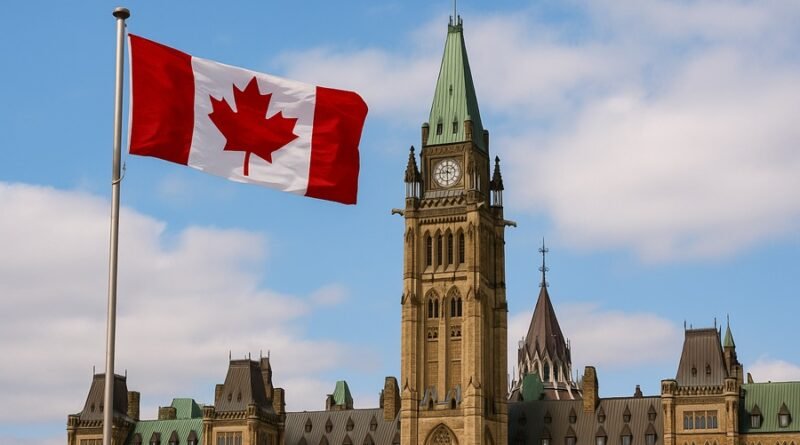Liberal Party Secures Victory in Canada’s 2025 Federal Election, Poised to Form Government Again
Published on: April 28, 2025 (According to Canada Timings)
Last updated: 11:56 ET
Source: Elections Canada – https://enr.elections.ca/National.aspx?lang=e
Ottawa — The Liberal Party of Canada, led by Prime Minister Justin Trudeau, is set to form the next federal government after securing 168 electoral districts in the 2025 federal election. Though just shy of the 172-seat majority threshold, the Liberals have emerged as the dominant party, comfortably ahead of their closest rival, the Conservative Party, which claimed 144 districts.
According to preliminary results released by Elections Canada, a total of 19,212,229 votes were cast across 343 electoral districts, with 99.26% of polls reporting. Voter turnout stood at 67.36%, based on 19.2 million voters out of over 28.5 million registered electors, not including those who registered on election day.
Preliminary National Voting Results (Party-wise Summary)
| Party | Electoral Districts Leading | % of Districts | Number of Votes | % of Votes |
|---|---|---|---|---|
| Liberal Party | 168 | 49.0% | 8,367,162 | 43.6% |
| Conservative Party | 144 | 42.0% | 7,949,114 | 41.4% |
| Bloc Québécois | 23 | 6.7% | 1,223,506 | 6.4% |
| NDP – New Democratic Party | 7 | 2.0% | 1,204,964 | 6.3% |
| Green Party | 1 | 0.3% | 238,916 | 1.2% |
| People’s Party (PPC) | 0 | 0.0% | 139,241 | 0.7% |
| Others (combined) | 0 | 0.0% | ~89,000+ | <1.0% |
Voter Engagement
- Polls Reporting: 74,920 of 75,479
- Registered Electors: 28,525,638
- Ballots Cast: 19,214,851
- Voter Turnout: 67.36% (excluding day-of registration voters)
What This Means
With 168 seats, the Liberals are in a commanding position and are expected to form either a minority government with confidence from smaller parties, or seek final confirmations from remaining ballots to push closer to the majority mark of 172 seats. Either way, the electoral outcome marks a continued mandate for the Liberal leadership, securing their position at the helm of Canadian politics.
The Conservative Party, while performing strongly with over 41% of the popular vote, will now take on the role of the official opposition. Smaller parties such as the Bloc Québécois and NDP maintained their influence in regional pockets, particularly in Quebec and urban centers, respectively.
What’s Next?
Elections Canada will continue to validate and certify the final results in the coming days. Special ballots and late-arriving mail-in votes may still slightly alter seat counts, but the overall outcome is expected to remain unchanged.
For real-time updates and official data, visit: https://enr.elections.ca/National.aspx?lang=e
Geopolitical Implications: A Fresh Chapter in Canada–India Relations Post-2025 Election
The 2025 federal election marks a pivotal moment not only in Canadian domestic politics but also on the global stage. With the Liberal Party securing a dominant lead with 168 seats, and now no longer dependent on smaller, ethnically driven factions such as Jagmeet Singh’s party NDP, Canada is set to take a more balanced and independent foreign policy approach — especially toward India.
🇮🇳 India–Canada Relations: From Tension to Potential Reset
In recent years, India–Canada ties were strained due to political pandering to pro-Khalistani voices within the Canadian political ecosystem. These tensions peaked amid allegations of interference and controversial public statements. However, the defeat of diaspora-based identity politics, particularly Jagmeet Singh’s influence, signals a turning point.
With Trudeau’s Liberals no longer needing coalition support from such groups, the Canadian government is expected to:
- Distance itself from separatist rhetoric linked to Khalistani sympathizers
- Rebuild strategic and diplomatic trust with New Delhi
- Revive trade talks under CEPA (Comprehensive Economic Partnership Agreement)
- Enhance cooperation in high-tech, education, and clean energy sectors
Diplomatic observers in New Delhi see this as a “window of opportunity” to reset bilateral ties with Ottawa, especially given India’s rising global stature and leadership in the Global South.

